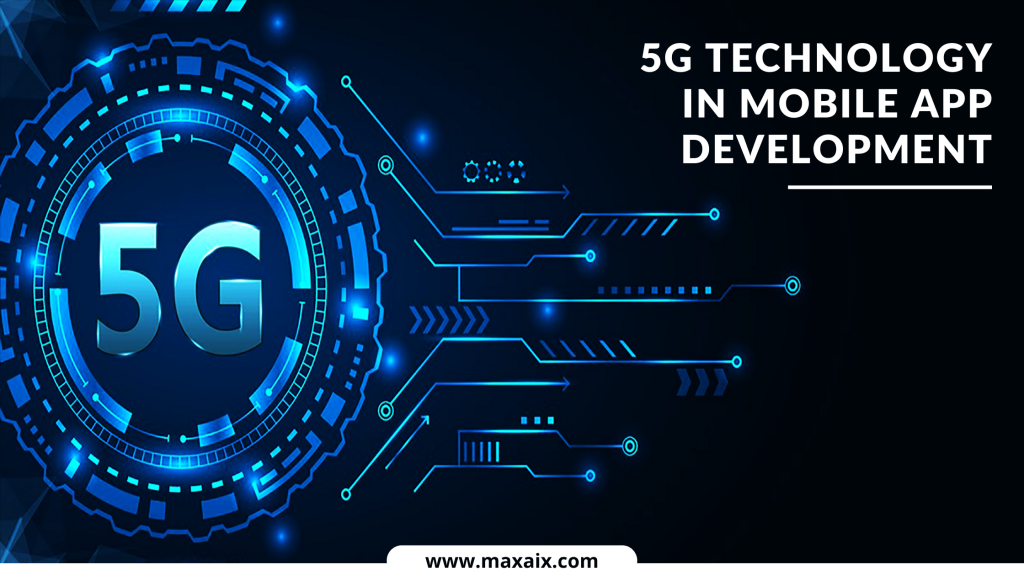5G Technology in Mobile App Development

In the fast-paced world of mobile app development, staying abreast of technological advancements is crucial for delivering cutting-edge solutions. The advent of 5G technology promises to revolutionize the mobile app landscape, offering unprecedented speed, connectivity, and innovation. In this comprehensive guide, we’ll explore the impact of 5G technology in mobile app development, its key features, challenges, real-world cases, and future outlook.
Evolution from 1G to 4G
With the introduction of 1G networks in the 1980s, which offered rudimentary voice communication capabilities, mobile technology began to evolve. Each generation of mobile networks has resulted in significant improvements in terms of speed, capacity, and functionality throughout time:
- 1G: Analog cellular networks provided rudimentary voice-calling capabilities.
- 2G: Digital networks enabled limited data services and text messages (SMS).
- 3G: Provides high-speed data transfer to enable multimedia messaging (MMS), basic mobile internet services, and internet access.
- 4G: Using LTE (Long-Term Evolution) networks, it provided noticeably better data rates, allowing users to watch HD videos, play games on their phones, and download sophisticated mobile apps.
Introduction to 5G
Mobile technology has advanced significantly with the arrival of 5G, or the fifth generation of mobile networks. When compared to its predecessors, it claims to provide ultra-fast speeds, ultra-low latency, huge connections, and improved dependability. Mobile users will be able to experience unprecedented levels of immersiveness and flawless connectivity with 5G.
Overview of 5G Technology and Its Specifications
5G technology is unique in a number of important aspects and attributes:
- Speed: With peak download rates of up to 20 gigabits per second (Gbps) and latency as low as 1 millisecond (ms), 5G offers noticeably higher data speeds.
- Capacity: 5G networks are perfect for busy events and congested metropolitan locations since they can handle many connected devices.
- Low Latency: 5G lowers latency, allowing immersive experiences like augmented and virtual reality apps, as well as real-time communication.
- Reliability: 5G networks offer steady connectivity even in difficult conditions because of their enhanced coverage and decreased network congestion.
Understanding the Key Features of 5G Technology in the Mobile App Development Industry
A few significant capabilities brought forth by 5G technology will revolutionize the creation of mobile apps, including:
- Enhanced Speed: 5G enables smooth streaming, quicker downloads, and real-time data processing by offering noticeably faster upload and download rates.
- Low Latency: 5G’s incredibly low latency makes it possible for responsive gaming, in-the-moment interactions, and immersive AR/VR apps.
- Massive Connectivity: 5G can accommodate a vast array of linked devices, opening the door for smart gadgets and IoT (Internet of Things) applications.
- Edge Computing: 5G networks enable edge computing capabilities, allowing mobile apps to transfer processing duties to edge servers for improved response times and performance.
- High-Definition Content: 5G makes it possible for mobile devices to stream rich multimedia experiences, high-fidelity audio, and high-definition video.
Challenges for Developers in the 5G Era
Although 5G technology creates several obstacles for developers, it also gives previously unheard-of prospects for mobile app development:
- Complexity: Creating apps for 5G calls for knowledge of novel networking protocols, low-latency performance optimization, and the use of edge computing.
- Compatibility: It might be difficult to guarantee compatibility with a variety of devices and network configurations, particularly while 4G and 5G are transitioning.
- Security: As the connection grows, security threats also increase. Developers must implement strong security measures to protect user information and ensure the integrity of their apps
- Cost: The creation and testing of 5G-enabled apps may require more funds and resources, especially for startups or smaller development teams.
What are the key characteristics and innovative features of 5G technology that will influence mobile app development?
The following are the salient traits and novel aspects of 5G technology that will impact the creation of mobile apps:
- Network Slicing: Mobile operators can divide their network infrastructure into virtual segments best suited for services or applications with the help of 5G.
- Multi-Access Edge Computing (MEC): 5G supports edge computing capabilities, which let mobile apps transfer processing duties to edge servers, minimizing latency and speeding up response times.
- Enhanced Mobile Broadband (eMBB): 5G allows for much faster data rates and more capacity, which makes it possible to use VR, AR, and HD video streaming.
- Connectivity for the Internet of Things (IoT): 5G networks facilitate a vast array of linked devices, opening doors for IoT applications, smart cities, and linked automobiles.
- Low Latency: 5G’s incredibly low latency makes it possible for responsive gaming, in-the-moment communication, and immersive AR/VR applications.
How Will 5G Technology Work in the Mobile App Development Industry?
5G technology will work in the mobile app development sector by:
- Faster Data Transfer: 5G allows quick data movement, enabling mobile apps to offer immersive multimedia, real-time updates, and HD content.
- Real-Time Communication: 5G’s low latency enables real-time collaboration and communication in mobile apps, including calls, texts, and video conferencing.
- Immersive Experiences: 5G supports responsive interactions and smooth streaming for AR and VR apps.
- IoT Applications: 5G enables seamless communication among numerous linked devices, including smart appliances, connected cars, and IoT apps.
Real-world Cases of the 5G Impact on the Mobile App Development Industry
The following are some actual instances of how 5G will affect the mobile app development market:
- AR Applications: 5G enhances AR apps for gaming, navigation, and shopping with high-speed data and low latency.
- Remote Collaboration Tools: 5G enables real-time communication and HD video streaming, boosting teamwork and productivity.
- IoT Applications: 5G supports IoT applications like industrial automation, smart appliances, and connected cars.
- Healthcare Applications: 5G enables telemedicine, remote patient care, and real-time monitoring, improving patient outcomes and healthcare access.
Future Outlook: The Next Steps for Mobile App Development in the 5G Era
There are exciting possibilities for the future of mobile app development with the arrival of the 5G era:
- Innovative Apps: Developers will use 5G’s speed and low latency to create novel apps.
- Edge Computing: Wider use of edge computing in app development will improve app performance.
- IoT Integration: IoT device integration with mobile apps enables smart home automation and linked cars.
- Improved User Experiences: 5G technology allows developers to offer responsive gaming and real-time communication on mobile devices.
5G Technology in Mobile App Development with Maxaix
We at Maxaix are specialists in developing mobile apps with 5G technology. Our skilled team uses 5G technology to create top-notch, high-performing apps. Whether it’s IoT solutions, AR/VR apps, or rich multimedia experiences, choose Maxaix for 5G-enabled app development.
Conclusion
The mobile app industry has significant growth potential with 5G technology. 5G’s high speeds, low latency, and vast connectivity enable developers to create immersive experiences, real-time communication, and IoT apps. Despite challenges with complexity, compatibility, and security, 5G can revolutionize the mobile app development industry.
Frequently Asked Questions
What is 5G technology, and how does it impact mobile app development?
The 5th generation of mobile communication technology, or 5G, offers more capacity, reduced latency, and quicker speeds. This makes it possible for developers to produce immersive, high-performing mobile applications.
What challenges do developers face in leveraging 5G technology for mobile app development?
Obstacles encompass prerequisites for the infrastructure, incompatibilities, worries about data security and privacy, and the demand for specific knowledge and abilities in fields like edge computing and Internet of Things integration.
How will 5G technology work in the mobile app development industry?
In addition to supporting cutting-edge technologies like AR, VR, AI, and IoT, 5G technology will improve connection, enable developers to produce high-performance apps with immersive experiences, and stimulate innovation in the mobile app development sector.
What real-world cases demonstrate the impact of 5G on mobile app development?
Improved gaming, engrossing AR and VR apps, IoT-driven manufacturing, transportation, healthcare, and agricultural solutions, and the creation of intelligent, networked user experiences are examples of real-world applications.
What is the future outlook for mobile app development in the 5G era?
Sustained innovation, cross-industry cooperation, ecosystem expansion, and an emphasis on user-centric design principles define the future view to provide intuitive, interesting, and customized experiences enabled by 5G technology.
What role will cross-industry collaboration play in advancing mobile app development in the 5G era?
Cross-industry collaboration will promote innovation, expansion, and ecosystem development in the mobile app development sector by creating integrated solutions that leverage 5G’s capabilities to tackle difficult problems and enhance user experiences.


